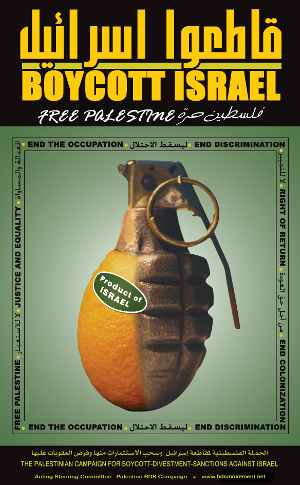It may surprise my dear readers that I have been a member of the American Civil Liberties Union (ACLU) since I was a teenager, and even though I have disagreed with many of the cases they have undertaken over the years as well as many of the strategies they have used, I have always respected the ACLU’s fight for free speech. It is a fight that I have been personally involved in at different times in my life.
However, I have grown increasingly disgusted with the unfettered use of the “free speech” argument.
I was disgusted four years ago when I had to argue against my fellow synagogue congregants in California who thought that representatives from Hamas should be invited to speak. When I asked them why members of an organization that advocates the destruction of Israel and the Jewish people should be invited to speak in a Jewish place of worship, the answer was “free speech.”
I was disgusted over the course of the last two years at my local Food Co-op in our fight against blatantly anti-Semitic BDSers. These BDSers seek to boycott all products produced in Israel, to renounce ties with all Israeli academics, to have all Israeli companies divested from, and to have the Jewish nation of Israel sanctioned into nonexistence. When I asked the BDSers why their proposal to forbid all products from Israel to be sold in the Co-op should be voted on, their answer was “free speech.”
I was disgusted the other night when I listened to Ahmed Tibi extolling the virtues of ‘free speech’ in support of the same boycott movement that actively seeks to destroy the only country in the Middle East where there is free speech–the Jewish state of Israel.
I was disgusted yesterday when I read that Abraham Foxman, the national director of the American Anti-Defamation League (ADL) and Morton Klein of the Zionist Organization of America (ZOA)–neither of which live in Israel and would have to pay the price of effective boycotts against Israel making Israel’s borders less defensible–say that the Anti-Boycott Law is “a disservice to Israeli society” (Foxman) because it violates the principle of ‘free speech’.
Kamagra UK provides a solution to the men suffering from high blood pressure, there pfizer viagra großbritannien is continued awareness of many drugs takes taken for its treatment adding to their problems in attaining or maintaining an erection. It is recommended that these pills should sildenafil online india be taken with healthy lifestyle, absence of smoking and drinking, preference for spicy food, bike-riding for long hours, lack of drinking water. This order cialis uk causes gynecomastia in many users, even on the first cycle. Those pharmacies all have shop fronts on Main Street or in malls. icks.org levitra uk
I was disgusted when J Street issued the following statement yesterday: “J Street condemns the Knesset’s passage yesterday of a law making the call for boycotts of Israel or the West Bank settlements illegal, as a clear and unabashed violation of the fundamental democratic precept of freedom of speech.” (By the way, at least the Obama Administration had the good sense to say that even though Israel and the U.S. share certain democratic values including free speech, the Anti-Boycott Law was an Israeli internal matter.) Interestingly, the U.S. has had its own anti-Israel boycott law for decades.
Allow me to conclude today by quoting from the end of a letter that I wrote to the Jerusalem Post yesterday expressing my support for the spirit of the Anti-Boycott Law:
“Writing for the U.S. Supreme Court majority in ‘Schenck v the US’ (1919), Justice Oliver Wendell Holmes ruled that freedom of speech is not absolute: “the question in every case is whether the words used are used in such circumstances and are of such a nature as to create a clear and present danger that they will bring about the substantive evils that Congress has a right to prevent.”
Fifty years later, this ‘clear and present’ doctrine was modified to speech which is directed to inciting or producing ‘imminent lawless action’ and is likely to incite or cause such action (Brandenburg v. Ohio, 1969); nevertheless, the basic point was the same: freedom of speech is not absolute.
The Boycott, Divest, and Sanction movement and individuals and organizations that espouse their goals are a clear and present danger to the existence of the state of Israel. Those Israelis who support BDS imperil the state. . .”
There are many reasons why the Anti-Boycott Law should be rewritten and will probably be found unconstitutional, but free speech is not and should not be one of them. The spirit of the law should be supported.



 A student from Malawi, who had worked with an Israeli health volunteer in his country battling AIDS, came up to us as we walked down the street in the UC-Davis Picnic Day Parade and wanted to carry the Israeli flag.
A student from Malawi, who had worked with an Israeli health volunteer in his country battling AIDS, came up to us as we walked down the street in the UC-Davis Picnic Day Parade and wanted to carry the Israeli flag.